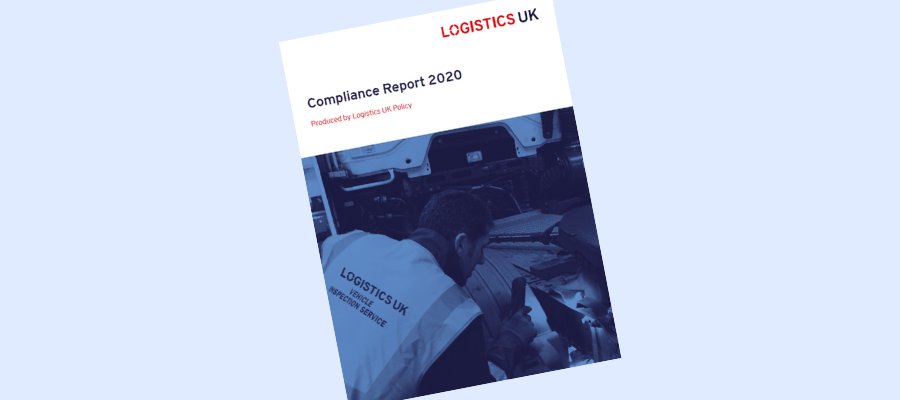🕒 Article read time: 4 minutes
Logistics UK launches its first Compliance Report

Logistics UK’s Director of Policy, Elizabeth de Jong, launched the first Compliance Report at the second Transport Manager conference yesterday (2 December 2020).
The report is based on the business group’s analysis of publicly available data from the Driver and Vehicle Standards Agency (DVSA), as well as Freedom of Information requests made to DVSA.
OPERATOR LICENSING ACROSS BRITAIN
According to the report, there were 68,746 licensed operators in August 2020. Just over half (51.4%) of operator licences were restricted, more than a third (36.4%) were standard national and fewer than one in eight (12.2%) were standard international. The East of England had the largest number of licensed operators in Great Britain (12,613), as well as the greatest number of specified vehicles (69,560), while Wales had the lowest number of licensed operators (4,683) and the fewest specified vehicles (19,347).
OPERATOR LICENCE NUMBERS DIP
In 2019/20, the number of operator licences fell by 2.5% in relation to 2018/19. This is more than a quarter fewer licences (27.2%) than the level during the last “credit crunch” recession of 2008/09. However, while the number of operator licences decline, the number of HGVs has increased, growing by more than 6.5% from 338,912 in 2014 to 361,120 in 2020.
SMALL FLEETS PREDOMINATE
Just over four-fifths of licence holders have fewer than five HGVs; more than one in ten have no vehicles (11%) and a third have two to five vehicles. Just 1.4% of licence holders had 50 or more vehicles. However, when measured as a proportion of the total HGV vehicle parc, fleets of 50 or more vehicles made up 31% of the total. This means fewer than 1,000 operator licence holders are responsible for the operation of 110,883 vehicles.
BIG OR SMALL, BOARD LEVEL ENGAGEMENT IS CRITICAL
When procuring maintenance services, larger fleets are likely to take advantage of economies of scale, and greater numbers of people involved in the management of compliance will bring varieties in skills and experience to the organisation. On the other hand, in smaller operations the link between company bosses and the compliance regime may be easier to manage directly. Irrespective of the size of operation, Traffic Commissioners would expect that fleet compliance was a normal and regular part of the board’s work.
BETTER UNDERSTANDING OF THE DATA
In his introduction, the report’s author James Firth, Logistics UK’s Head of Road Freight Regulation Policy, said: “The Logistics UK Compliance Report 2020 aims to examine what the statistics are telling us and, perhaps more importantly, where we need a better understanding of data to make effective interventions – either through good practice or further regulation – in our aim to continually improve the safety of Britain’s roads.”
In the foreword to the report, David Wells, Logistics UK’s Chief Executive, said: “In this, our first Compliance Report, we have sought out and analysed bespoke data from a range of sources. Much of the information in the following pages is not normally publicly available; we hope that the way in which we have brought it together in one place will provide awareness and clarity on how well the industry as a whole is maintaining standards and bring into sharp focus areas for improvement.”
*https://logistics.org.uk/compliance-report-2020
Published On: 03/12/2020 16:00:13

Comments Section
If you are a Logistics UK member login to add comments.